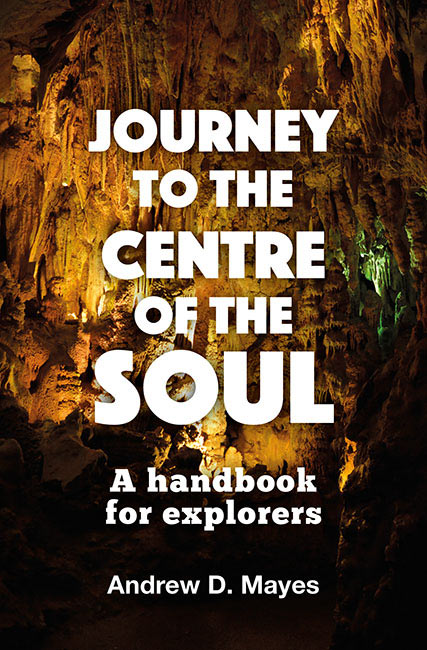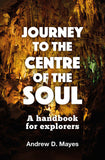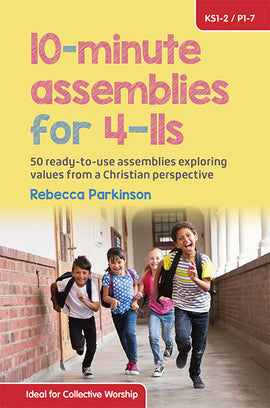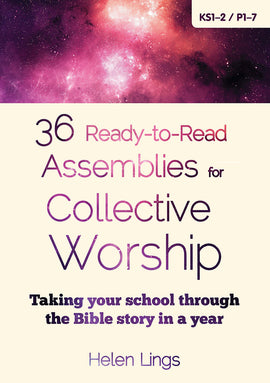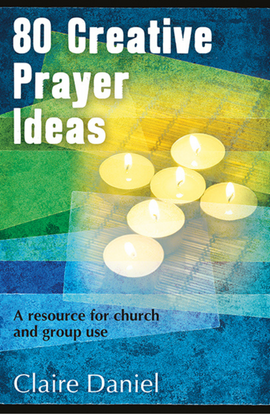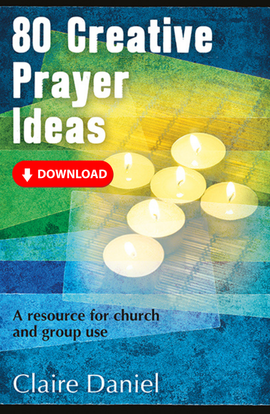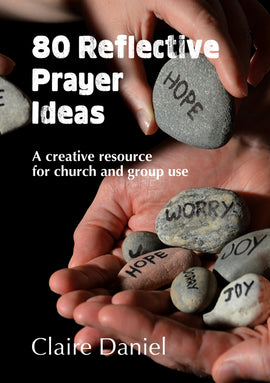Journey to the Centre of the Soul: A handbook for explorers
This unique and ground-breaking book is a summons to a subterranean spiritual adventure, an odyssey of the soul. If you let it, it will invigorate and inspire a search for something deeper in the spiritual life, and will link you with trusted spiritual guides to support you as you progress in a journey of discovery. Journey to the Centre of the Soul mines the rich seams of Christian spirituality, risks the depths, faces the darkness and make astonishing, transformative discoveries.
Digital Product - This title is now out of print but is still available digitally. Please click the button below to buy on Kindle or click below to visit our eBooks collection to buy this product for your smartphone and/or tablet. - Go to eBooks
| Title | Journey to the Centre of the Soul: A handbook for explorers |
| Author | Andrew D. Mayes |
| Description | This unique and ground-breaking book is a summons to a subterranean spiritual adventure, an odyssey of the soul. If you let it, it will invigorate and inspire a search for something deeper in the spiritual life, and will link you with trusted spiritual guides to support you as you progress in a journey of discovery. Journey to the Centre of the Soul mines the rich seams of Christian spirituality, risks the depths, faces the darkness and make astonishing, transformative discoveries. |
| Details |
|
This unique and ground-breaking book is a summons to a subterranean spiritual adventure, an odyssey of the soul. If you let it, it will invigorate and inspire a search for something deeper in the spiritual life, and will link you with trusted spiritual guides to support you as you progress in a journey of discovery. Journey to the Centre of the Soul mines the rich seams of Christian spirituality, risks the depths, faces the darkness and make astonishing, transformative discoveries.
- 1 Reading the geology of the soul: your spiritual history
- 2 Entering the cave of the heart: going deeper
- 3 Plunging beneath the waters: the hidden river of prayer
- 4 Carving out cisterns: resources and reserves
- 5 Tunnelling beneath the rock: developing communications
- 6 Plummeting into the abyss: descending into the depths of God
- 7 Facing the dragons: the dark side
- 8 Mining buried treasure: unearthing hidden gems
- 9 Calling from below: subversive prophetic voices
- 10 Treading lightly - and moving forwards
I warmly commend Andrew Mayes' 'Journey to the Centre of the Soul' having always enjoyed his writings and derived much encouragement from them. Andrew is able to draw together the wisdom of the ages, from the Fathers, through Byzantium and the Middle Ages, up to the Modern Age. He also infuses this sweep of history with his own imagination and gives readers rich insights as contemporary spiritual needs come into focus.
Bishop Christopher Chessun, Bishop of Southwark
This is a book on spirituality, but not the fashionable kind: in the author's words, 'narcissistic, self-centred and all about self-empowerment.' Andrew Mayes offers a radical alternative, to be found in a costly journey into the very depths of humanity. Through silence, solitude, detachment and receptivity that journey leads to what he calls 'prophetic spirituality' and an encounter with the 'imprint of divine teaching'. It's not an easy read, but it unlocks some stubborn doors on the way to wonderful possibilities. An important book and possibly unique.
Revd Canon David Winter
'Journey to the Centre of the Soul' is no invitation to introspection. The journey it's about is God's to the caves of Bethlehem, the Mount of Olives and Christ's empty tomb lightening our darkness. As God is all present seeking him in things below rather than above is a creative ploy by Andrew Mayes in tackling superficiality, the curse of our age. An experienced spiritual director versed in Christian authors, Fr Mayes is well equipped by his knowledge of the Holy Land to bring Scripture alive in contexts which reach the unreachable parts of us. There are ten chapters each ending with questions for reflection useful for groups as well as individuals, and a prayer exercise. The handbook is imaginative, well structured and easy to read.
Canon John Twisleton
The Revd Canon Dr Andrew D. Mayes is the Spirituality Adviser for the Diocese of Chichester, where he previously served as director of clergy and lay training. He is an international speaker and teaches at the London Centre for Spirituality, as well as leading retreats across the UK. He is also the author of several books on spirituality.
The Reader, Summer 2018
Review by Rona Orme
This may be a spiritual book for explorers, as it is subtitled, but it certainly is not for beginners. It is for those well-versed in the scriptures and with a rudimentary knowledge of some mystical writers. A degree of comfort with theological vocabulary will also help. Not a quick or easy read, this book will reward slow, reflective reading. As an extended metaphor of underground landscape to encourage spiritual awareness, it is original and stimulating. Some may find there is too much geological information. The prayer exercises in each chapter are imaginative and varied. The book could be used as the basis for a retreat or with an experienced home group. Spiritual directors and those looking for fresh imagery for the work of the Spirit will find much of value here.
Review by Rona Orme
Church Times review by Peter McGeary
In the past few months, I have had to lead quiet days for different groups of men and women preparing for ordination. Not having done much of this kind of thing, I was aware that, in my inexperience, I was using far too many words to communicate far too many things. I only hope that they got something out of it all.
Andrew Mayes uses plenty of words in his book, but he does so in a much more focused way than I did, to get the reader to concentrate more closely on particular aspects of the spiritual life. He is an experienced retreat-giver, and knows that any words he uses are there to instil prayer and reflection in the reader.
Rather than throw out lots of ideas to see if some of them will stick, he uses each chapter to drill down and distil reflection on an aspect of the spiritual life: one's spiritual history, resources that can help, confronting darkness in prayer, being open to surprising things, and so on.
Mayes spent several years living and working in the Holy Land, and this experience gives shape to the text: each chapter comes out from the ground, so to speak, as an observation on some aspect of the geology or geography of a place leads to reflections on the spiritual life and what we can learn. This is, I suppose, a kind of 'contextual spirituality'. Each chapter ends with questions to ponder and an exercise to do, which helps to make the book usable by groups as well as individuals.
The Bible has bequeathed to us an inheritance of imagery which Christians cannot help but believe: the ground and what is below is the place of burial, death, the underworld, damnation. To apprehend God, we need to look up and ascend. And many are the writers who have helped this imagery along, with their circles of hell or their spiritual mountains.
Mayes is rightly not content with this: digging down, going underground, is to do here with profundity, truthfulness, and substance: the journey that can be exhilarating, frightening, and difficult, but which leads to transformation and true enrichment, bringing one closer to the One who is beyond all images.
The Revd Peter McGeary is the Vicar of St Mary's Cable Street, in East London and a Priest-Vicar at Westminster Abbey
Review by Canon John Twisleton
I read this book on pilgrimage to Lourdes so its theme of God revealing himself in caves chimed in with my experience there though the book is built around Holy Land pilgrimage. The title 'Journey to the Centre of the Soul' is not primarily an invitation to introspection. The journey it's about is God's to the caves of Bethlehem, the Mount of Olives and Christ's empty tomb lightening our darkness. As God is all present, seeking him in things below rather than above is a refreshing 'subterranean spiritual adventure, an odyssey of the soul' led by the ever-creative Andrew Mayes.
Superficiality is the curse of our age, the author declaims as he opens up rich seams of Christian spirituality to assist our transformation from the inside out. An experienced spiritual director versed in Christian authors, Fr Mayes is well equipped by his knowledge of the Holy Land to bring Scripture alive in contexts which reach the unreachable parts of us. As I viewed the Lourdes Grotto where Bernadette unearthed the healing stream I found myself, in Andrew Mayes' words, 'slipping into the abyss of God's love... for... Christ is abiding, residing at the centre of being. He is in fact the very centre of the soul!'.
'Journey to the Centre of the Soul' has ten chapters each ending with questions for reflection, useful for groups as well as individuals, and a prayer exercise. I liked the Eckhart quote about the Spirit of God as a great underground river and the question: 'What is the evidence, outer or inner, in your life that indicates the hidden, secret presence of the Spirit deep within?'. The associated prayer exercise builds expectation on Jesus as giver of the Spirit. The chapter on 'Facing the dragons: the dark side' ends with a meditation on the demoniac of Mark 5:1-20 and what it is to 'live among the tombs' with a reflection on a Richard Rohr quotation: 'The path of descent is the path of transformation. Darkness, failure, relapse, death and woundedness are our primary teachers, rather than ideas or doctrines.'.
The power of the book is its rooting of Christian spirituality in the bible and provocative spatial images with appeal to wisdom across traditions 'from Hadewijch to Soelle, Rolle to Rohr, Meister Eckhart to Moltmann and Angela of Toligno to Roman Williams' (BRF press release). It ends with a helpful and typically provocative examination of spirituality itself tackling the persistent dualism between the holy and the profane, the other-worldly and the worldly. As a spiritual handbook it is imaginative, well structured and easy to read.
Canon John Twisleton, Haywards Heath

